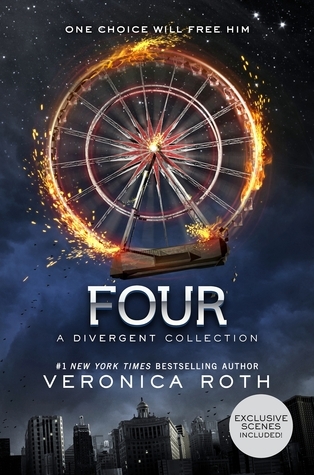
Free Four: Tobias Tells the Divergent Knife-Throwing Scene
Book Description
A knife's edge glints in the dim light, tension crackling in the air. Tobias stands poised, caught between loyalty and betrayal, as he prepares to face the imminent danger within the heart of the Divergent world. The swirling emotions of love and uncertainty fuel a dangerous game where every throw could mean survival—or death. As secrets unravel and alliances are tested, the lines between friend and foe blur, leaving Tobias grappling with the weight of his choices. Can he navigate the deadly stakes of his past and forge a path to redemption? What will happen when the truth finally cuts deep?
Quick Book Summary
“Free Four: Tobias Tells the Divergent Knife-Throwing Scene” by Veronica Roth offers a unique retelling of a pivotal scene from the Divergent universe, this time from Tobias 'Four' Eaton's perspective. Through Tobias’s sharp gaze, readers experience the tension, fear, and vulnerability swirling in the Dauntless training room during the dramatic knife-throwing test. As he’s pressed to throw knives at Tris, hidden feelings of affection and protectiveness surface, contrasting the cold expectations of Dauntless leadership. The story delves into Tobias’s internal conflict, caught between loyalty to his faction and his growing attachment to Tris, while also exposing his struggle with vulnerability and trust in a brutal society. This short story enriches our understanding of Tobias, providing a deeper lens on loyalty, love, and courage within the high-stakes world of Divergent.
Summary of Key Ideas
Table of Contents
Perspective and Narrative Shift
In this companion short story to Divergent, Veronica Roth reimagines the iconic knife-throwing scene through the eyes of Tobias 'Four' Eaton. The reader witnesses how Tobias perceives the Dauntless training environment: a place of both excitement and coercion, designed to test bravery through extreme, sometimes disturbing, measures. Tobias, as a respected instructor, must walk the line between maintaining authority and questioning the system's harsh demands. Every glance, order, and calculated action reveals not only his outward composure but his struggle against an oppressive environment.
Conflict Between Loyalty and Emotion
Tobias’s inner world is rich with conflicting loyalties and emotions. While his role requires him to uphold Dauntless ideals and challenge the initiates, his attraction to Tris puts his loyalty to the test. When Eric, his rival authority figure, pushes boundaries by forcing Tobias to throw knives at Tris, Tobias is thrust into a moral dilemma. He wants to protect her, yet he cannot openly defy the protocols without risking suspicion and reprisal from Dauntless leadership. This moment highlights Tobias’s fear of betraying his own values or endangering Tris, intensifying the emotional stakes.
Power Dynamics and Authority
The dynamics of power and control play a significant role in shaping the scene. Eric’s presence is a constant reminder of the unyielding expectations and social pressures governing Dauntless. Tobias must perform under Eric’s watchful eye, masking his personal feelings and suppressing more gentle instincts. Despite the outward bravado required of him, Tobias’s narrative reveals vulnerability and subtle defiance, as he takes calculated risks to ensure Tris’s safety while maintaining the façade of authority. His actions and thoughts embody the complexity of living authentically in an oppressed system.
Fear, Vulnerability, and Trust
Themes of trust and vulnerability are woven throughout Tobias’s experience. He recognizes Tris’s bravery and resilience, yet also worries about her safety and his ability to protect her. Their connection, though largely unspoken, is charged with emotion; he wishes she could see his intentions beyond the surface of the harrowing game they are forced to play. For Tobias, this moment is not just about skill with a knife, but about risking emotional exposure within an environment hostile to weakness or affection, deepening his bond to Tris and to his own sense of identity.
Defiance and Identity
As the scene draws to a close, Tobias is left grappling with the consequences of his choices. The lines between friend and foe remain blurred, and the knife-throwing ordeal reinforces the harsh realities of Dauntless life. Tobias’s narration provides rare insight into the costs of loyalty, love, and defiance, suggesting that true courage sometimes means taking risks not just with knives, but with trust and vulnerability. "Free Four" reminds readers how perspective can alter understanding, adding new dimensions to the world—and characters—they thought they knew.
Download This Summary
Get a free PDF of this summary instantly — no email required.





